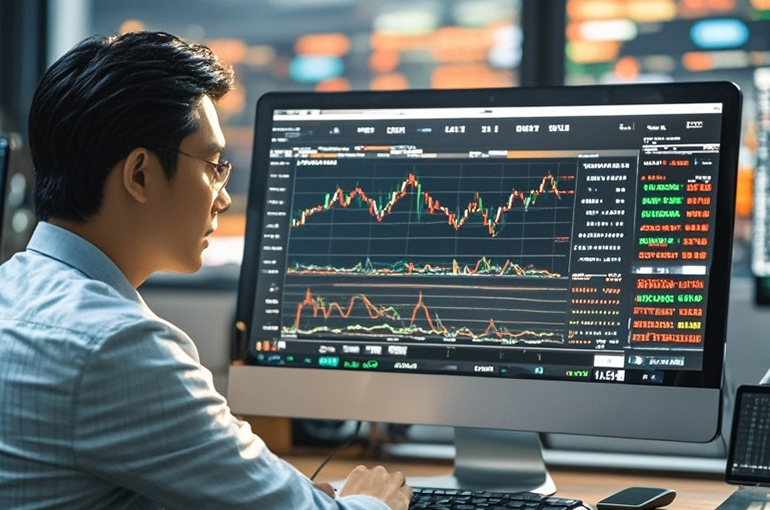 Chinese Stocks to Rebound as State Funds Step In After Tariff-Driven Selloff, Analysts Predict
Chinese Stocks to Rebound as State Funds Step In After Tariff-Driven Selloff, Analysts Predict(Yicai) April 8 -- Chinese analysts expect stock prices to rebound, supported by equity purchases from state funds, following short-term market volatility triggered by escalating tariff tensions between the United States and China.
Markets are likely to fluctuate under short-term uncertainty, but China’s policy hedging is crucial, so the market is expected to fall first and then rise, analysts said after a broad selloff yesterday -- the first trading day since China responded to the latest US tariff hikes on April 4 by imposing reciprocal 34 percent tariffs on US-origin goods.
A-shares showed signs of recovery today. The Shanghai Composite Index rose 1.6 percent after a 7.4 percent drop yesterday. The Shenzhen Component Index gained 0.6 percent, following a 9.7 percent plunge. The ChiNext Index edged up 1.8 percent after tanking 12.5 percent the previous day.
Yesterday’s total turnover reached CNY1.62 trillion (USD220.7 billion), an increase of CNY459.7 billion (USD62.7 billion) compared with the previous session. More than 5,200 stocks declined, with over 2,900 hitting their daily limit-down.
To prevent a deeper downturn, the government has stepped in. Central Huijin Investment, a subsidiary of China Investment Corporation, a sovereign wealth fund, announced yesterday that it has once again increased its holdings of exchange-traded funds and will continue to do so moving forward.
Short-Term Shocks
Analysts noted that the Donald Trump administration’s tariff hikes have intensified global trade frictions, impacting markets both domestically and internationally. They added that since markets were unprepared for the escalating tensions, short-term shocks are inevitable.
BOC International (China) Co. stated that in the short term, investors remain in a risk-off mode amid overseas uncertainties. As a result, risk aversion could accelerate, placing additional adjustment pressure on risk assets.
China International Capital Corporation said that while the tariffs will inevitably pose challenges to China’s economy, the current stock market environment is more favorable than during the difficult year of 2018 or even the past three years. Contributing factors include evolving geopolitical and technological narratives, attractive valuations of Chinese assets, and room for more aggressive macroeconomic policies.
"Chinese assets are more resilient than other global equities in the short term, and they present more opportunities than risks over the medium term," CICC noted. With appropriate policy responses, the risk premium is expected to continue improving, accompanied by a revaluation of Chinese assets, it added.
China Merchants Securities predicted that the stock market may experience an initial decline followed by a rebound this month. External shocks are expected to ease in stages, potentially allowing the market to resume its upward trend.
Guotai Junan Securities emphasized that policymakers are committed to reversing the current downturn. It also pointed out that the decline in the risk-free rate (the interest rate on low-risk assets such as government treasuries) is likely to encourage fresh capital inflows. The brokerage added that the impact of overseas volatility will likely be quickly priced in, paving the way for short-term recovery opportunities and potential rebounds.
State Support
The People’s Bank of China announced today that it fully supports Central Huijin in its efforts to increase ETF holdings. The central bank also stated that it would provide sufficient re-lending support to the state-owned investment company when necessary, ensuring the stability of capital market operations.
Moreover, the National Financial Regulation and Administration emphasized the need to optimize policies related to insurance funds while strengthening support for both the capital market and the real economy, as outlined in a notice issued today.
Specifically, the financial regulator indicated that it would raise the upper limit of equity assets for certain insurance funds relative to the solvency adequacy ratio by 5 percentage points. Moreover, it will allow higher investments in venture capital funds to help foster the growth of strategic emerging industries. Lastly, the regulator will relax the rules surrounding tax-deferred pension schemes.
Editor: Emmi Laine